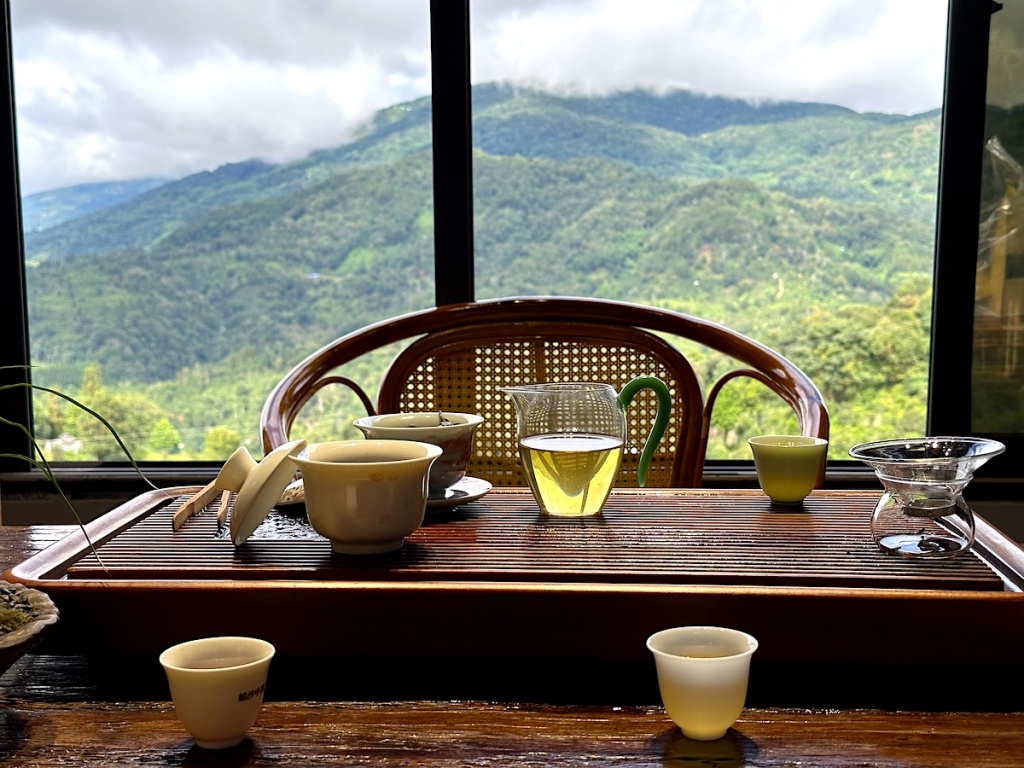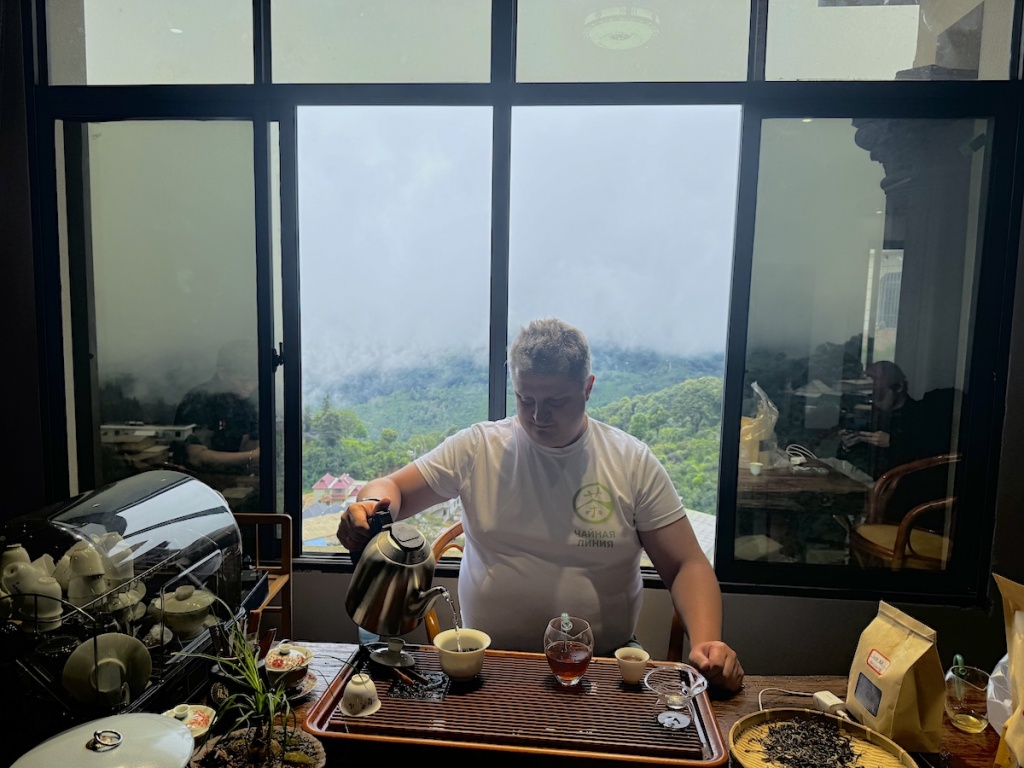Why Pu-erh Tea Becomes More Astringent with Each New Steeping
Puer is a unique tea that is famous for its rich flavor and ability to improve over time. However, many puer lovers notice that with each new brew, the infusion becomes more and more tart. Let's figure out why this happens.
Chemical composition of puer and its effect on taste
The astringency of puer is due to the presence of certain substances in its composition, mainly polyphenols. Polyphenols are powerful antioxidants that give tea a tart, astringent taste. The most important polyphenols responsible for astringency are catechins.
What happens when brewing?
- First steeps: During the first few steeps, it is mostly the water-soluble substances such as amino acids and sugars that are released into the water, which give the tea its sweetness and smoothness. Catechins, being less soluble, are extracted to a lesser extent.
- Subsequent steeps: With each subsequent steep, the concentration of catechins in the water increases, resulting in increased astringency. Additionally, under the influence of high temperatures and prolonged contact with water, some polyphenols may oxidize and form new compounds that increase astringency.
When brewing tea, the rate of dissolution of substances such as amino acids, caffeine and theaflavins, which give tea sweetness, in water is much higher than the rate of dissolution of catechins, which belong to the polyphenol group and cause astringency. Therefore, when we drink Sheng Puer, we first feel the sweet aroma of tea, and then the astringency.
Many varieties of Sheng Puer begin to show astringency only after several steepings, and the intensity of astringency increases with each subsequent brewing. Why does this happen?
The fact is that catechins and other substances that cause astringency have a gradual effect on nerve endings and require some time to be clearly felt by the body. In addition, this is also due to the individual characteristics of each person, namely the sensitivity of the nervous system: people with more sensitive nerves feel astringency more strongly.
Factors Affecting Puerh Astringency
- Tea variety: Different varieties of pu-erh have different polyphenol content and, accordingly, different degrees of astringency.
- Fermentation Level: Sheng Pu'er is generally more astringent than Shu Pu'er, which has undergone additional fermentation.
- Steeping time: The longer the tea steeps, the more polyphenols are released into the infusion, increasing the astringency.
- Water Temperature: Higher temperatures promote faster extraction of polyphenols.
- Water Quality: Hard water can increase the astringency of tea.
Why is astringency important for pu-erh?
- Multifaceted Flavor: Astringency is an integral part of the flavor profile of pu-erh and adds depth and complexity.
- Health Benefits: The polyphenols responsible for astringency have many beneficial properties such as antioxidant, anti-inflammatory and antibacterial activity.
Astringency has an amplifying effect. It increases with the volume of tea drunk, the concentration of the tea, and the number of tea drinking sessions over a certain period of time.
The more tea you drink and the stronger the brew, the more irritation of the nerve endings is caused by substances such as lipid catechins, which belong to the group of polyphenols and cause astringency. And an increase in the number of tea parties over a certain period of time leads to a constant increase in irritation of the nerve endings by these substances, which increases the feeling of astringency.
Thus, the person drinking puerh feels that the astringency becomes stronger with each subsequent brewing. This is why puerh becomes more astringent with each brewing.
How to enjoy the astringency of pu-erh?
- Experiment with water temperature and brewing time: Find the optimal conditions for each specific type of tea.
- Pair Pu-erh with a variety of foods: The astringency of Pu-erh pairs well with the sweetness of dried fruits, nuts and honey.
- Experience the evolution of flavor: Enjoy how the flavor of pu-erh changes from brew to brew.
Puerh's astringency is a natural property of this tea, due to its chemical composition. Understanding the causes of astringency will help you better appreciate the versatility of puerh's taste and enjoy this unique drink.
- Комментарии
- Вконтакте






